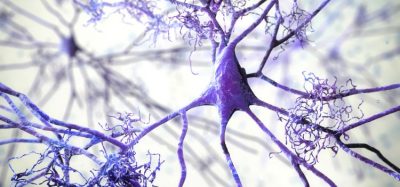Biologics to Complement Statins in Cholesterol Treatment Space, says GlobalData Analyst
Posted: 12 November 2014 | | No comments yet
Biologics will play an influential role in shaping the future of cardiovascular (CV) drug treatment, as these and other emerging therapies will compete for patients who cannot tolerate statins, or for whom statin therapy alone is insufficient, according to an analyst with research and consulting firm GlobalData…


Biologics will play an influential role in shaping the future of cardiovascular (CV) drug treatment, as these and other emerging therapies will compete for patients who cannot tolerate statins, or for whom statin therapy alone is insufficient, according to an analyst with research and consulting firm GlobalData.
Eric J. Dimise, Ph.D., GlobalData’s Analyst covering Cardiovascular and Metabolic Disorders, states that while statins have long been the dominant therapeutics for out-of-control, low-density lipoprotein cholesterol (LDL-C), or “bad” cholesterol, new agents in the late-stage pipeline are poised to inject some excitement into this well-established space.
Dimise says: “Possibly the most obvious headline-grabbing players in the CV pipeline are the proprotein convertase subtilisin/kexin type 9 (PCSK9) inhibitors, the first ever biologic agents aiming to break into the mainstream treatment regimen for hypercholesterolemia and cardiovascular disease (CVD).
“PCSK9s are monoclonal antibodies (mAbs) that reduce LDL-C by enhancing the liver’s ability to recycle LDL receptors, the molecular ‘filters’ that remove LDL-C from the body’s circulation.”
The analyst notes that while the outlook for PCSK9 biologics is promising, they will need to demonstrate substantial clinical benefits if they hope to tap the 95% of patients who are statin tolerant.
Dimise continues: “Amgen, with its PCSK9 mAb, evolocumab, and Sanofi/Regeneron, with alirocumab, are currently embroiled in a contest to win the coveted first-to-market status for their respective therapies. Phase III programs for both PCSK9s are impressive in size and scope, with major CV outcomes trials still ongoing.
“These companies know that even if their PCSK9s are only used to treat the 5% of the estimated 70 million statin-intolerant hypercholesterolemia patients in the US alone, they could easily reap blockbuster-level returns that justify the upfront investments.”
GlobalData’s interviews with key opinion leaders have revealed a respectable level of excitement surrounding the PCSK9s, largely due to the important unmet need that high-risk, statin-intolerant patients represent.
Dimise concludes: “As the PCSK9s would be the first biologics to break into the mainstream of chronic LDL-C-lowering drug treatment, their potential for long-term use would mark a paradigm shift in the field.”








